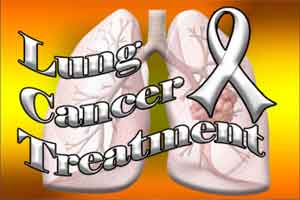- Home
- Medical news & Guidelines
- Anesthesiology
- Cardiology and CTVS
- Critical Care
- Dentistry
- Dermatology
- Diabetes and Endocrinology
- ENT
- Gastroenterology
- Medicine
- Nephrology
- Neurology
- Obstretics-Gynaecology
- Oncology
- Ophthalmology
- Orthopaedics
- Pediatrics-Neonatology
- Psychiatry
- Pulmonology
- Radiology
- Surgery
- Urology
- Laboratory Medicine
- Diet
- Nursing
- Paramedical
- Physiotherapy
- Health news
- Fact Check
- Bone Health Fact Check
- Brain Health Fact Check
- Cancer Related Fact Check
- Child Care Fact Check
- Dental and oral health fact check
- Diabetes and metabolic health fact check
- Diet and Nutrition Fact Check
- Eye and ENT Care Fact Check
- Fitness fact check
- Gut health fact check
- Heart health fact check
- Kidney health fact check
- Medical education fact check
- Men's health fact check
- Respiratory fact check
- Skin and hair care fact check
- Vaccine and Immunization fact check
- Women's health fact check
- AYUSH
- State News
- Andaman and Nicobar Islands
- Andhra Pradesh
- Arunachal Pradesh
- Assam
- Bihar
- Chandigarh
- Chattisgarh
- Dadra and Nagar Haveli
- Daman and Diu
- Delhi
- Goa
- Gujarat
- Haryana
- Himachal Pradesh
- Jammu & Kashmir
- Jharkhand
- Karnataka
- Kerala
- Ladakh
- Lakshadweep
- Madhya Pradesh
- Maharashtra
- Manipur
- Meghalaya
- Mizoram
- Nagaland
- Odisha
- Puducherry
- Punjab
- Rajasthan
- Sikkim
- Tamil Nadu
- Telangana
- Tripura
- Uttar Pradesh
- Uttrakhand
- West Bengal
- Medical Education
- Industry
Triple therapy to help fight deadly lung cancer

Washington: In experimental models of lung cancer, researchers have found that a combination of two drugs plus radiation can help treat resistant lung cancers which are susceptible to therapy.
Although the most common type of lung cancer - non - small cell lung cancer (NSCLC) - has recently seen major treatment advances, other subtypes continue to evade effective treatment.
Now, a new study in mice has shown that cancers with mutations in the gene known as KRAS may benefit from a triple therapy with two experimental drugs plus radiation therapy.
"Currently there is a clinical trial underway to evaluate the combination of two cancer drugs made by two pharma companies for patients with solid tumors and melanoma," claimed Bo Lu, professor of radiation oncology at Thomas Jefferson University.
"Our study suggests that we may be able to identify non-small cell lung cancer patients who are likely to benefit most from this combination of therapies," he added.
Roughly 85 percent of all lung cancers belong to the NSCLC type.
Although there have been some advances in treating this disease, only two percent of survivors live five years beyond treatment.
The researchers combined the KRAS-targeting drug with another drug.
Together, Dr Lu's group showed that the combination of the two drugs make these resistant cancer cells susceptible to radiation treatment.
"If you hit one target another can take over. If you hit two, it becomes a lethal bullet," Dr Lu added.
Dr Lu hopes that this research will help identify the patients who could potentially benefit from a triple-therapy treatment.
Although the most common type of lung cancer - non - small cell lung cancer (NSCLC) - has recently seen major treatment advances, other subtypes continue to evade effective treatment.
Now, a new study in mice has shown that cancers with mutations in the gene known as KRAS may benefit from a triple therapy with two experimental drugs plus radiation therapy.
"Currently there is a clinical trial underway to evaluate the combination of two cancer drugs made by two pharma companies for patients with solid tumors and melanoma," claimed Bo Lu, professor of radiation oncology at Thomas Jefferson University.
"Our study suggests that we may be able to identify non-small cell lung cancer patients who are likely to benefit most from this combination of therapies," he added.
Roughly 85 percent of all lung cancers belong to the NSCLC type.
Although there have been some advances in treating this disease, only two percent of survivors live five years beyond treatment.
The researchers combined the KRAS-targeting drug with another drug.
Together, Dr Lu's group showed that the combination of the two drugs make these resistant cancer cells susceptible to radiation treatment.
"If you hit one target another can take over. If you hit two, it becomes a lethal bullet," Dr Lu added.
Dr Lu hopes that this research will help identify the patients who could potentially benefit from a triple-therapy treatment.
Next Story


